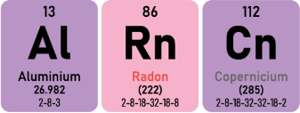Porn Discounts Sex Games Porn Games Juegos XXX Hentai Games PornStar Games 3D Porn Tantaly Sex Doll Cupsland Sextoy Live Cams
Live Sex Free Live Sex Free Sex Games Páginas Porno Rose Toy Free OnlyFans Celebrity Fappening Celebrity Sex Videos TikTok Porn Best OnlyFans
Live Sex Free Live Sex Free Sex Games Páginas Porno Rose Toy Free OnlyFans Celebrity Fappening Celebrity Sex Videos TikTok Porn Best OnlyFans
Published on 2018/02/27









GABRIELLA PAPADAKIS' SLIP
Gabriella Papadakis, France's representative along with Guillaume Cizeron in Pyeongchang's Winter Games, had a problem with her dress, leaving one tit exposed. I suppose not many people noticed it, but the photographers were there to catch the moment.








ExtraBall
Opting to "Mother of the Year" prize. Using her daughter to shalter from the rain.
Opting to "Mother of the Year" prize. Using her daughter to shalter from the rain.
POLE VAULTING IN PARIS 2K24
Pole vaulting is a sport that only interests the participants and their mothers—unless it gives us standout moments like those from the Frenchman Anthony Ammirati and the Estonian Tilga Karel.

# Watch videos
ExtraBall
The slow-mo of the day.
ExtraBall2
(Clicking on these links daily you support ALRNCN's work. They're collaborators or sponsors and, by visiting their sites, they like us even more)











REACTING AS IF NOTHING HAPPENED
On November 15, 2024, after Mexico's national team lost 2-0 to Honduras in the first leg of the CONCACAF Nations League quarterfinals, coach Javier Aguirre was struck on the head by a beer can thrown from the stands at Estadio General Francisco Morazán in San Pedro Sula. The impact caused a bleeding wound on his head.
Despite the injury, Aguirre downplayed the incident in his subsequent statements, saying, "It's not even worth mentioning because it's football, and I'm not one to complain." However, the Mexican Football Federation condemned the attack and urged CONCACAF to take action.
In response, CONCACAF sanctioned the Honduran team, requiring them to play their next home match behind closed doors and imposing a fine for failing to implement adequate security measures.

# Watch Video
ExtraBall
Big Wigs.
ExtraBall2
(Clicking on these links daily you support ALRNCN's work. They're collaborators or sponsors and, by visiting their sites, they like us even more)

























RECOMMENDED SITES
 Add your site
Add your site
- BoobieBlog
- mybigtitsbabes
- Entensity
- celeb-stalker.com
- Babes & Bitches
- sweetlicious
- Erotic Beauties
- Candid Teens
- drunkenstepfather
 Add your site
Add your sitePorn Discount
💩 CrazyShit
🤪 eFukt
NudeChatGirls
👉🍑 Top XXX Pictures
Bingo Porno
Best Porn Blog Sites
Sex Games
Real Amateur Porn
MrPornGeek
CamBB.xxx
ChatSex.xxx
Comepollas
PornScn Free Porno
AI Girlfriend App

















LIN YU-TING LOSES AND IMANE KHELIF WINS
Yesterday, we discussed the controversy surrounding the boxing competition at Paris 2024 due to the participation of Algerian Imane Khelif and Taiwanese Lin Yu-Ting, who, after undergoing DNA tests, were found to have XY chromosomes.
The fights are taking place since the IOC allows countries to choose their representatives. On one hand, Lin Yu-Ting lost to the Russian representative, while Imane Khelif won after the Italian Angela Carini withdrew, stating that "it was too strong of a punch."

# Watch videos
ExtraBall by david
The slow-motion moments of the day.
ExtraBall2
(Clicking on these links daily you support ALRNCN's work. They're collaborators or sponsors and, by visiting their sites, they like us even more)











NOT EVERY FLIGHT SHARED ON SOCIAL MEDIA IS A SPECTACULAR SUCCESS
Andrea Borrello gives us a perfect example of how a flight can go wrong and still turn into a valuable lesson. He himself shared the experience of his paragliding accident in an honest and detailed way:
Date: 9.08.2024
Mistakes escalation:
1- wrong assessment of the height between the cliff and the flat area right below.
2- losing patience after waiting 2h on the top for the right wind trying on every side of the mountain
3- became very nervous but wanted to fly anyway because that cliff attracted me
4- decided to start with basically very light wind thinking it was enough for that launch with the psychological mindset I had at the time.
Conclusion: If too much doubt better not to fly. I called the helicopter and I was lucky to have just broken in half my left-hand little finger, my coccyx and a big wound under my left leg.
Ps. If you’re looking for Kehetamine and fentanyl this is a great way to get them for free.
Sometimes, social media isn’t just for bragging—it’s also a space for reflection and learning.

# Watch Videos
ExtraBall
Kneading to go up 2 sizes.
ExtraBall2
(Clicking on these links daily you support ALRNCN's work. They're collaborators or sponsors and, by visiting their sites, they like us even more)












Contact
You can tell us whatever you want via email: [email protected]
If you prefer, you can use this contact form:
If you prefer, you can use this contact form:






CITIUS, ALTIUS, FORTIUS
In Ancient Greece, women were strictly forbidden from participating in the Olympic Games—not as athletes, nor as spectators, except in rare cases. Only unmarried young women were allowed to watch, while married women weren’t even permitted near the stadium. However, they didn’t just stand by; instead, they created their own competition, the Heraean Games, held in honor of the goddess Hera, where they showcased their athletic abilities in foot races.
It wasn’t until the 1900 Paris Olympics that women were finally allowed to compete, but only in a few sports like tennis and golf, and they made up less than 3% of the athletes.
Times have changed, and by the Tokyo 2020 Games, nearly 50% of the participants were women.

# View Images
ExtraBall by ariel
Bless you!
ExtraBall2
(Clicking on these links daily you support ALRNCN's work. They're collaborators or sponsors and, by visiting their sites, they like us even more)










ADRENALINE JUNKIES
david
Adrenaline, also known as epinephrine, is a hormone and neurotransmitter produced by the adrenal glands in response to stress or danger. It’s part of the body’s “fight or flight” response, preparing the organism to react quickly to perceived threats.
When adrenaline is released in the body, it triggers a series of physical effects: it increases heart rate, dilates airways, improves blood flow to muscles, and raises blood glucose levels to provide instant energy. These changes enable a person to react faster and with more strength in an emergency situation.
Adrenaline is so addictive because it creates a sense of euphoria and intense energy, which many people find pleasurable. This "high" can lead people to repeatedly seek out risky situations or thrilling activities that trigger the release of adrenaline, such as extreme sports, gambling, or dangerous activities. The body can start to crave that intense feeling, creating a cycle of constantly seeking the next adrenaline rush.

# Watch Videos
ExtraBall
A father will always put his life ahead of his child’s.
ExtraBall2
(Clicking on these links daily you support ALRNCN's work. They're collaborators or sponsors and, by visiting their sites, they like us even more)

































